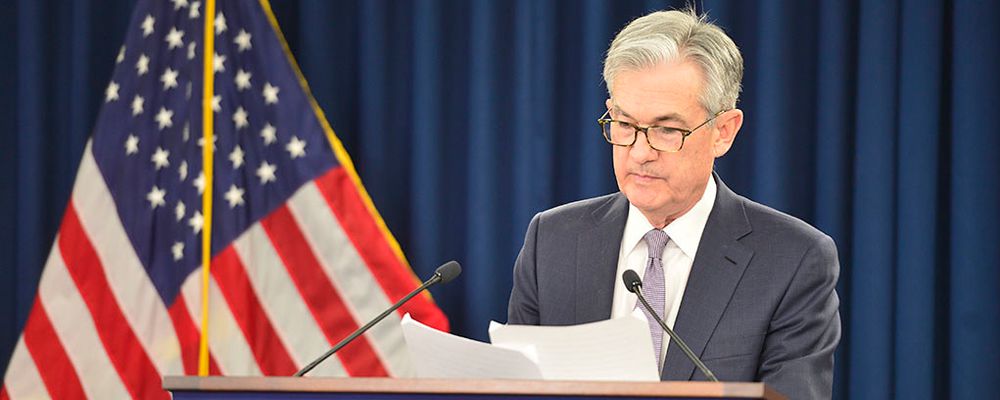Bonfire night brings sparkle to the stock market!
- Monday, November 8, 2021

Friday 5th November was another good day for world stock markets. In fact, the first week of November has given consistent daily returns to the world’s leading equity markets.
The Federal Reserve announced last Thursday that it would be starting the tapering of its US$120bn per month quantitative easing programme at a rate of US$15bn per month reduction. The level of reduction is US$5bn per month more than many expected, but shows that the Fed is confident the US economy can take this level of stimulus out of their economy. At this rate the QE programme will end in June 2022.
Markets took the news well as it has been trailed successfully. The US S&P 500 and Dow Jones Index both hit new highs. US 10-year treasury bonds yields fell to 1.45%.
The Fed also announced that it can be patient about rising interest rates. Fed Chairman, Jerome Powell has again expressed his opinion that price rise pressure is temporary but will persist well into 2022 but then fall back in Q2 and Q3. Mr Powell also confirmed that a US interest rate rise will not come until after the tapering support was ended.
The rise in stock market confidence is not just about the economy being able to take tapering but also that this quarters earning season has produced better than expected corporate profits. 82% of companies publishing their Q3 results came in higher than analysts had forecast. On top of this news the US economy was given a further boost with US employers taking on 531,000 new jobs in October. This follows 312,000 new jobs in September and 483,000 new jobs in August. Wage inflation is also rising at 4.9% over the past year which is ahead of US CPI inflation at 4.4%.
These solid job numbers are showing a consistent pattern of a return to work and that the Delta variant has not hindered this. The US economy is showing some momentum and there is an expectation that even larger numbers will return to work in November and December. If this is a pattern in the US, then it could be replicated in other developed countries as well.
The Fed will be under some pressure if the US job numbers keep on improving to look at interest rate rises sooner than 2023. The 531,000 new jobs in October indicates the fading impact of Delta Covid and helped put the recovery back on track. US unemployment rates fell from 4.8% in September to 4.6% in October. Whilst the recent job growth numbers have been encouraging, The US economy has struggled to lure millions of workers that became inactive during the pandemic, back into the jobs market. If there is not the return to the labour markets due to people simply deciding post lockdown that they do not want to, then full employment rates may come sooner than expected. A permanently smaller pool of workers could mean that the US economy reaches maximum employment earlier than anticipated.
A tighter jobs market is likely to be inflationary and therefore may prompt the Fed to hike rates in 2022 rather than 2023.
The Federal Reserve were not the only central bank to make a monetary policy announcement last week. Governor Andrew Bailey, confirmed that the Bank of England (BoE) monetary committee had, after earlier trailing the likelihood of a UK interest rate rise, instead voted to keep UK rates at 0.1%. The BoE committee voted 7-2 in favour of leaving rates unchanged as ‘there was value in waiting to see how the jobs market will come to terms with the end of the furlough scheme’ Mr Bailey did not rule out a rate rise in the months ahead.
Many analysts had suggested that they thought the BoE may be premature in rising UK interest rates as a rate rise would not solve the supply chain and labour shortages.
Chancellor Rishi Sunak, has had the good fortune to be able to use the improvement in the UK economy to be able to announce some big spending plans in the Budget on 27th October. The Chancellor was also keen to ensure that UK government debt will be falling by the end of the parliamentary term. Mr Sunak’s desire to get the public finances in order is another reason why many thought that the BoE’s earlier forward signalling over a rate rise, however modest was likely at this stage.
Despite the fears over supply chains, inflation, energy prices and labour shortages, the S&P 500 produced its best week performance in the past three months. The success of the S&P 500 was also matched by the European Euro Stoxx 50 and Euro Stoxx 600 hitting all-time highs and the FTSE 100 reaching 7303 which is a post pandemic high point.
Our own portfolios benefited from this rally with performances across the range beating the respective national average returns over the past one, three and six months.

Chris Davies
Chartered Financial AdviserChris is a Chartered Independent Financial Adviser and leads the investment team.
About Estate Capital
Financial Services
Our Contacts
7 Uplands Crescent,
Swansea, South Wales,
SA2 0PA.
Tel: 01792 477763
